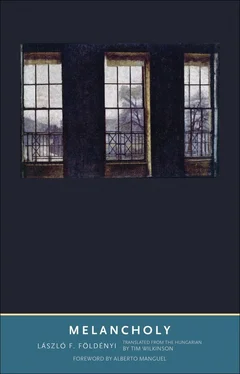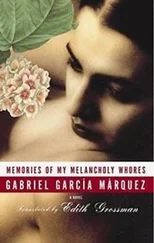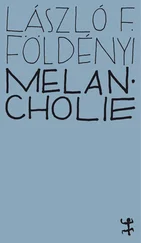8. Nostalgia, like the idea of melancholia, was eliminated from the lexicon of clinical psychiatry in the nineteenth century, only for it to become of interest again to the dynamic psychiatry of Karl Jaspers in the early twentieth century.
9. A fine example of the pairing of nostalgia and melancholia is the opening image of Hans Jürgen Syberberg’s monumental Hitler: A Film from Germany (1977): the lower part of the picture is taken up by the word “melancholia,” evoking the Düreresque inscription; above that, a tomb with the initials R.W. (Richard Wagner) on it, with a resurrected Hitler rising from the opening tomb.
10. Arthur Conan Doyle, “The Adventure of the Yellow Face,” from The Memoirs of Sherlock Holmes , 1893. That monotony can also be a source of a certain mysterious pleasure. “What is there more sad in this world than a Sunday afternoon in December in the barracks?” Céline writes. “And actually it takes me a great deal of effort to escape out of this melancholy. And it seems to me that my soul has softened and that I can only in such circumstances see what I really am” ( Cannon Fodder , 83).
11. Analyzing the increasingly frequent phenomenon of melancholia in Japan, several Japanese psychiatrists arrived at the same conclusion.
12. The psychoanalyst Alfred Winterstein likewise discerned a correlation between melancholia and mathematics.
13. An investigation of the fifty-five most famous U.S. comedians was carried out in 1974, and most of them proved to be suffering from depression.
14. This makes comprehensible the observations made by psychiatrists that the melancholic concerns himself to a striking degree with past events, and his dreams are also linked to the past.
15. On the instigation of Henry of Ghent, Étienne Tempier, the bishop of Paris, declared, “ Quod aevum et tempus nihil sunt in re, sed solum in apprehensione: error ” (“That age and time have no reality, but exist only in our perception, is an error”).
16. The Hungarian poet Dániel Berzsenyi writes in his poem “Melancholia”:
A vidámság csak a valóságnak
S szűk jelenvalónak szedheti rózsáit:
De te, karján a szép Álmodásnak,
Éled a jövendőt s a multnak óráit.
[Happiness can pick only the roses
of reality and the narrow present,
But you, on the arm of a fine dream,
You live the future and past hours.]
17. The teaching of Orphic theogony relating to Chronos, the god of time, illuminates this problem with unsurpassable sharpness. The Orphics regarded the Titan Cronus, who as Saturn became the incarnation of melancholia, as a seer and soothsayer, and since soothsayers have an insight into time , they identified Cronus, the father of Zeus, with the primordial deity Chronos. (According to some, the name Chronos derives from the verb  , “to fulfill”!). The union of the god of melancholy with the god of time corresponds to the similarly Orphic idea of Hellanicus of Mytilene and Hieronymus of Rhodes, which identified the likewise melancholic Hercules with timeless Chronos.
, “to fulfill”!). The union of the god of melancholy with the god of time corresponds to the similarly Orphic idea of Hellanicus of Mytilene and Hieronymus of Rhodes, which identified the likewise melancholic Hercules with timeless Chronos.
18. According to a note made by Plutarch, the inscription on the shrine of Isis at Sais read: “I am all that has been, and is, and shall be, and my robe no mortal has yet uncovered” ( On Isis and Osiris , in Moralia , 5:9).
19. According to the astrological differentiation of benign and malignant melancholia, the conjunction of Saturn and Jupiter in Libra lead to benign, the conjunction of Saturn and the moon in Scorpio to malignant melancholia.
20. “All of existence, from the tiniest gnat to the secret of incarnation inclusively, fills me with dread,” Kierkegaard wrote in his Journal from a far-from-Christian basic position.
21. Like Rosanette, the kept woman in Flaubert’s Sentimental Education , who “even before going to bed always exhibited a little melancholy, just as there are cypress trees at the door of a tavern” (ed. Dora Knowles Ranous, 155). One wonders whether Flaubert was aware that in the Middle Ages, cypresses were held to be melancholic plants. Equally, one wonders whether people in the Middle Ages were aware that according to Pythagoras, coffins should not be made of cypress, because the “scepter of Zeus was made of cypress wood” (see Mansfeld, Die Vorsokratiker , 177).
22. As when a typographical error comes to life and demands its rights, Kierkegaard might say.

 , “to fulfill”!). The union of the god of melancholy with the god of time corresponds to the similarly Orphic idea of Hellanicus of Mytilene and Hieronymus of Rhodes, which identified the likewise melancholic Hercules with timeless Chronos.
, “to fulfill”!). The union of the god of melancholy with the god of time corresponds to the similarly Orphic idea of Hellanicus of Mytilene and Hieronymus of Rhodes, which identified the likewise melancholic Hercules with timeless Chronos.










